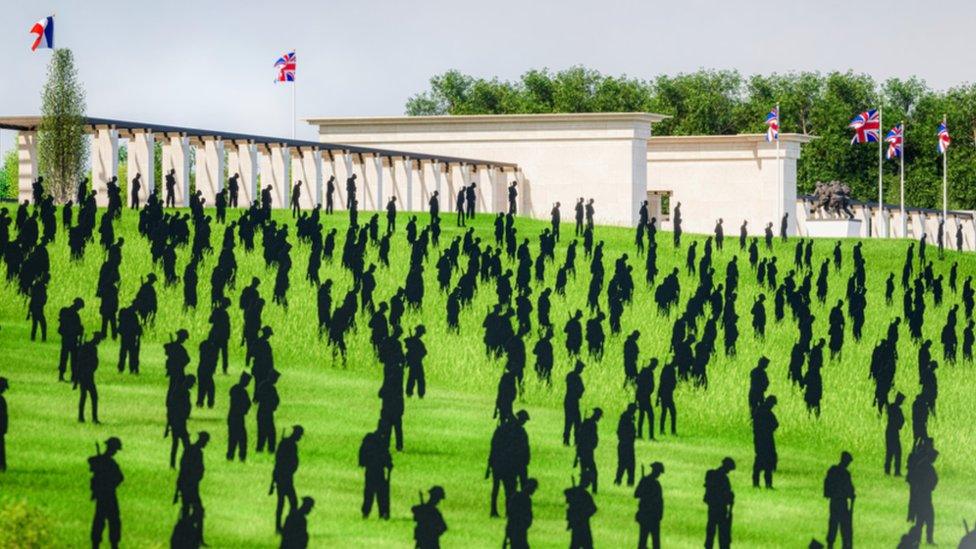Daughter remembers first man killed on D-Day
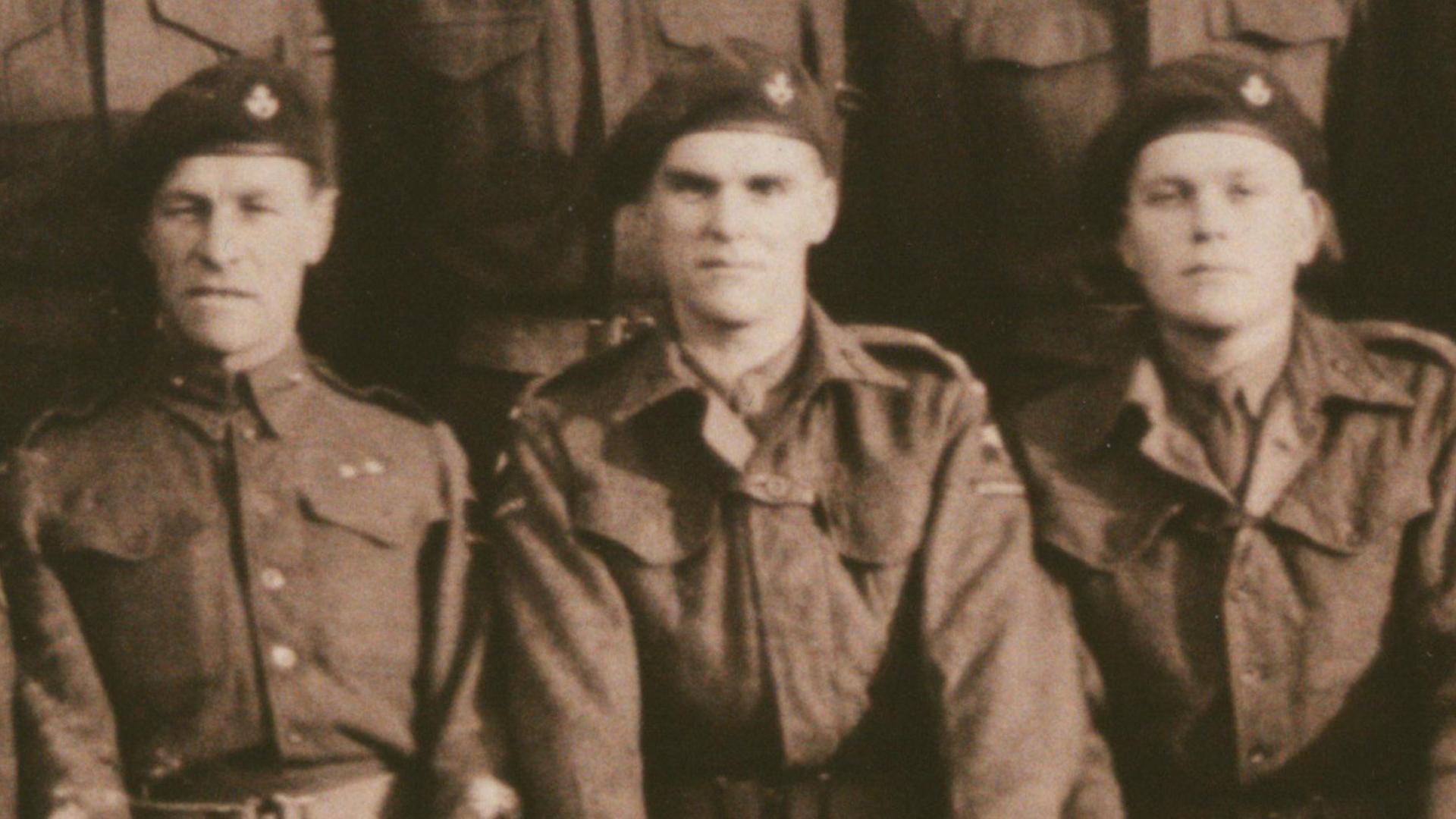
Lieutenant Brotheridge (centre) was in command of 25 platoon
- Published
The first soldier who was killed in combat on D-Day, 80 years ago, was a 28-year-old former weights and measures inspector, his daughter, who was born just days after he was killed, has recalled.
Lt Den Brotheridge was serving in the Oxfordshire and Buckinghamshire Light Infantry and took part in an operation to capture two strategic bridges.
Codenamed Operation Deadstick it was a successful mission but the talented cricketer and footballer was shot down by a German machine gunner.
Margaret Brotheridge did not discover what had happened to her father until she was an adult.
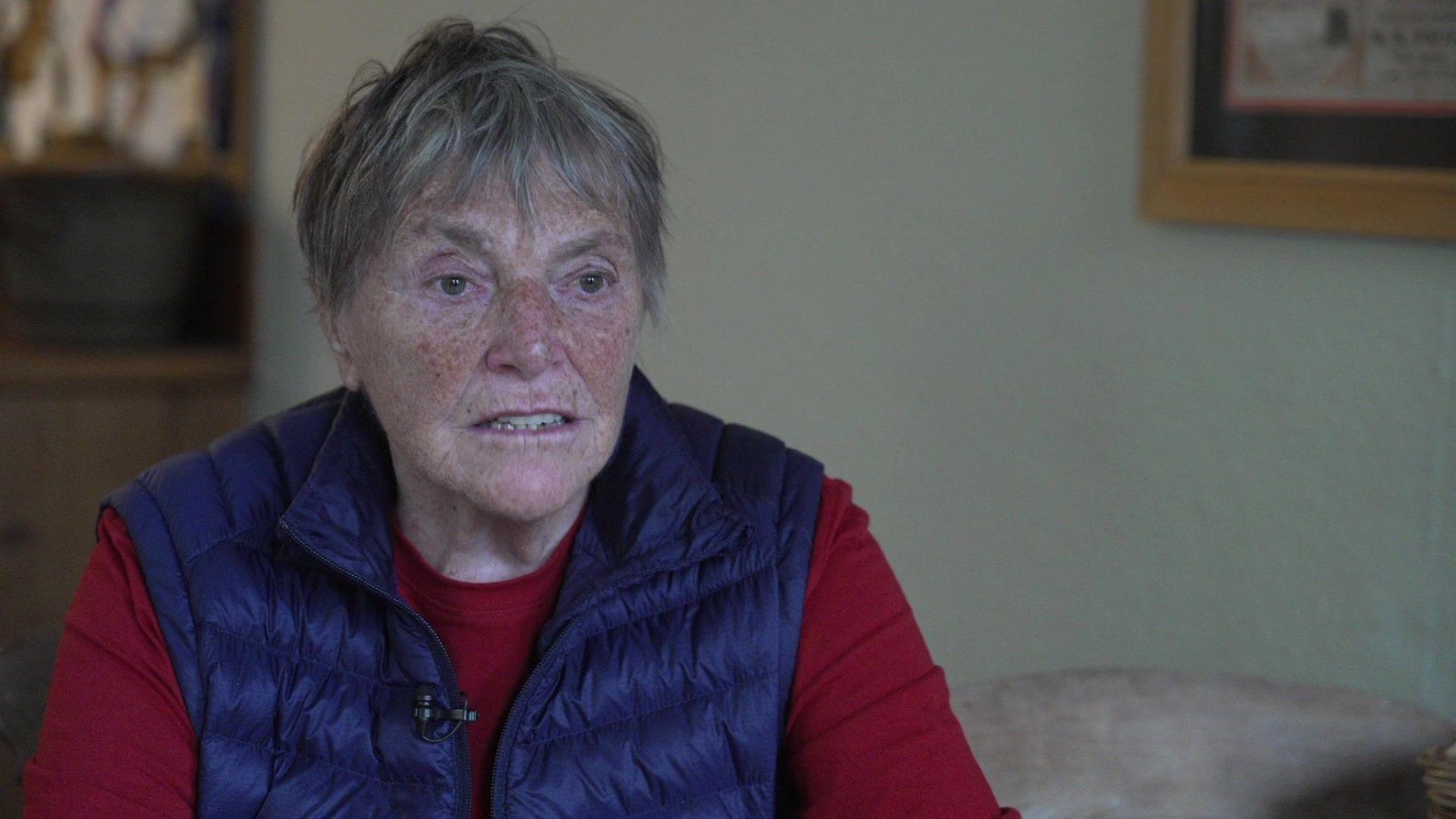
Margaret Brotheridge never knew her father - she was born 19 days after he was killed
This year she will be marking the 80th anniversary of D-Day and her father’s death by visiting Pegasus Bridge and paying tribute to him at the memorials that were built in his honour.
At her home in Honiton, Devon, Ms Brotheridge said: “I am obviously proud of what he did but the fact that he died was part of war.
“He was chosen to go first and I understand he got drunk as soon as he was chosen because he knew he’d probably be potted first.
"But if you are in the Army you are trained to do a job aren’t you?”
New research by the National D-Day Memorial Foundation in the US shows that on D-Day, 4,426 Allied personnel were killed.
Lt Brotheridge, from Smethwick in the West Midlands, was among 181 men from the Oxfordshire and Buckinghamshire Light Infantry who took part in the raid to capture the bridges over the Caen Canal and the River Orne, a few miles inland from the port of Ouistreham in Normandy, France.
They had taken off from Tarrant Rushton airfield in Dorset, packed into six Horsa gliders.
At 00:16 on 6 June 1944 they crash-landed a short distance from the bridges at Benouville.
By capturing and holding the bridges, the Allies successfully stopped the Germans from launching an effective counter-attack against the Allied forces landing on the Normandy beaches.
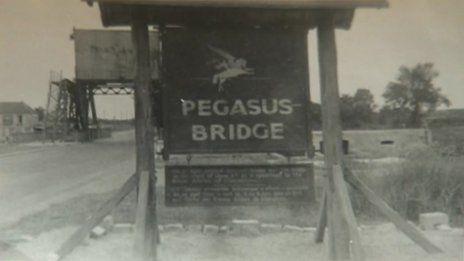
Ms Brotheridge will pay tribute to her father at Pegasus Bridge where a memorial has been erected in his honour
Lt Brotheridge was in command of 25 platoon, having risen through the ranks to become an officer, as they charged across Pegasus Bridge.
Frank Bourlet was a member of that platoon, he said: "He was up on the corner shouting out come on 25, come on 25.
"That’s the last words he ever said.”
Lt Brotheridge is widely regarded as the first soldier killed on D-Day and has a plaque dedicated to him at Smethwick Council House, external, in his home town.
Speaking of her visit to the memorial this year, Ms Brotheridge said: “I’m doing this for everybody else as well, not just my father.
"I’m doing this for everybody else who never came home.”
Lt Brotheridge was recommended for a Military Cross for his bravery at Pegasus Bridge but regulations at the time prevented that medal being awarded posthumously.
Instead he was given an official Mention in Despatches - an operational gallantry award given to all ranks for an act of bravery during active operations.
In 2019, a sculpture of Lt Brotheridge was toured around various sites related to D-Day, such as Pegasus Bridge, before being put on display at the D-Day Museum in Portsmouth.
Follow BBC South on Facebook, external, X (Twitter), external, or Instagram, external. Send your story ideas to south.newsonline@bbc.co.uk, external or via WhatsApp on 0808 100 2240, external.
Related topics
More on D-Day
- Published15 May 2024
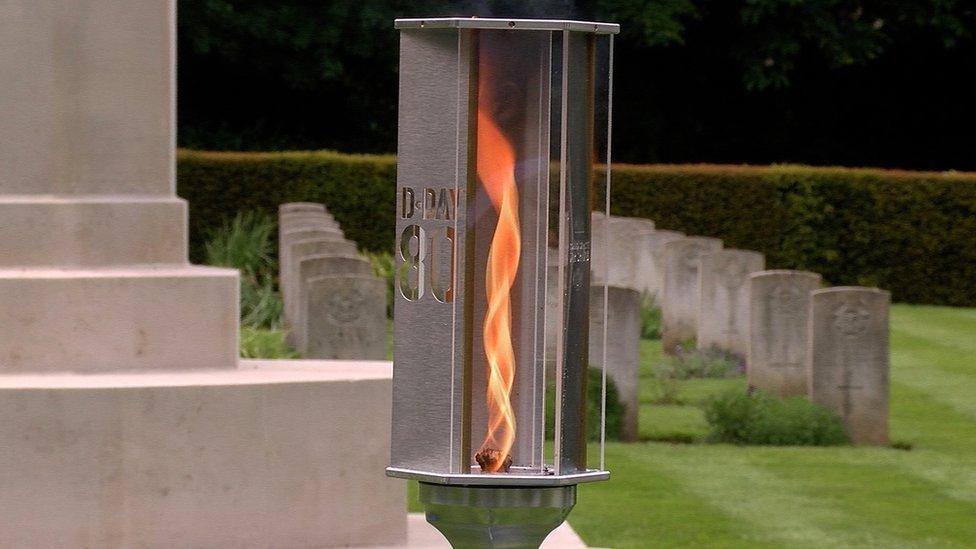
- Published5 April 2024
